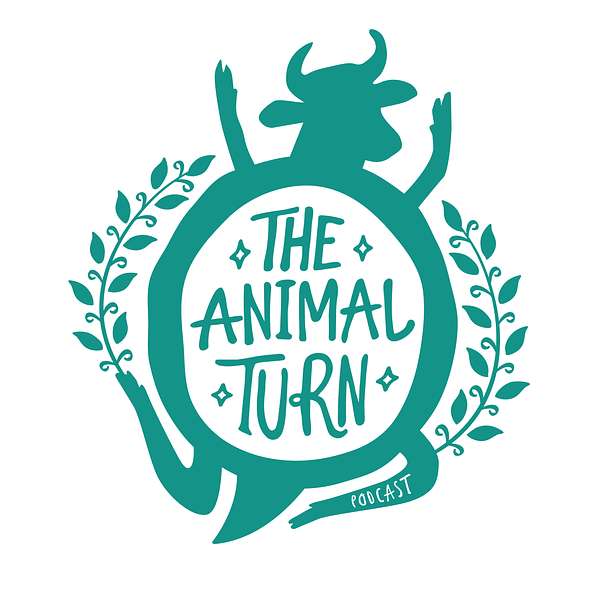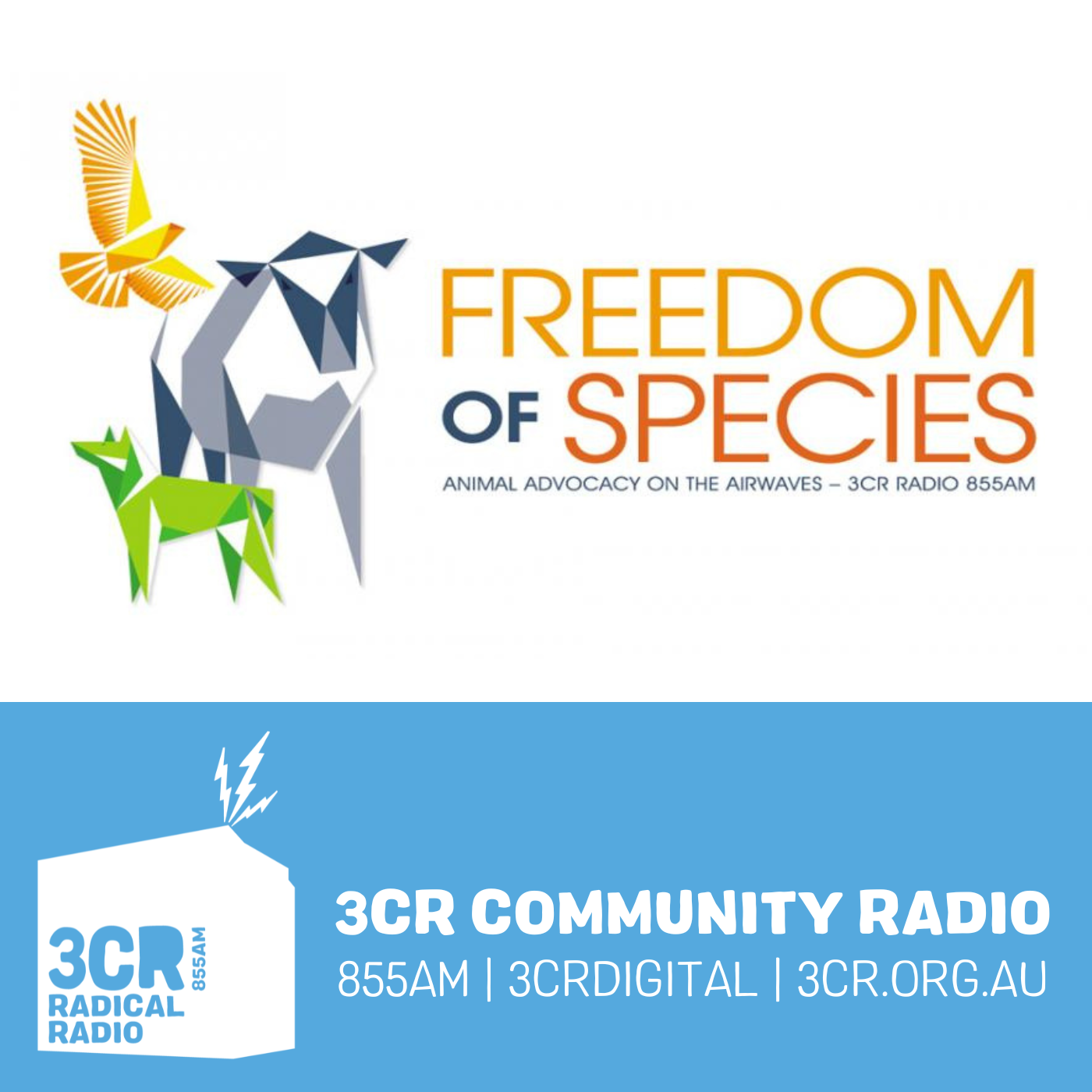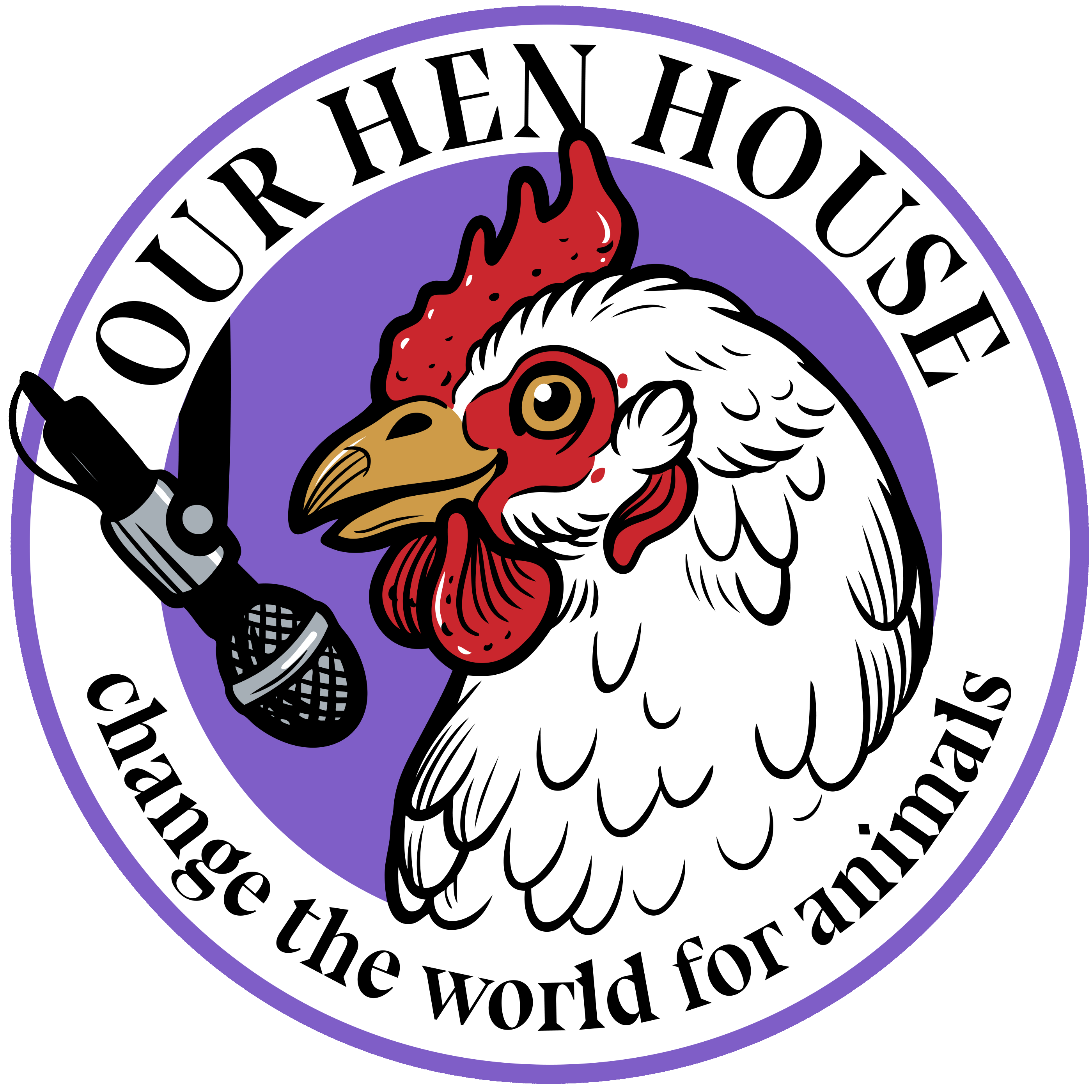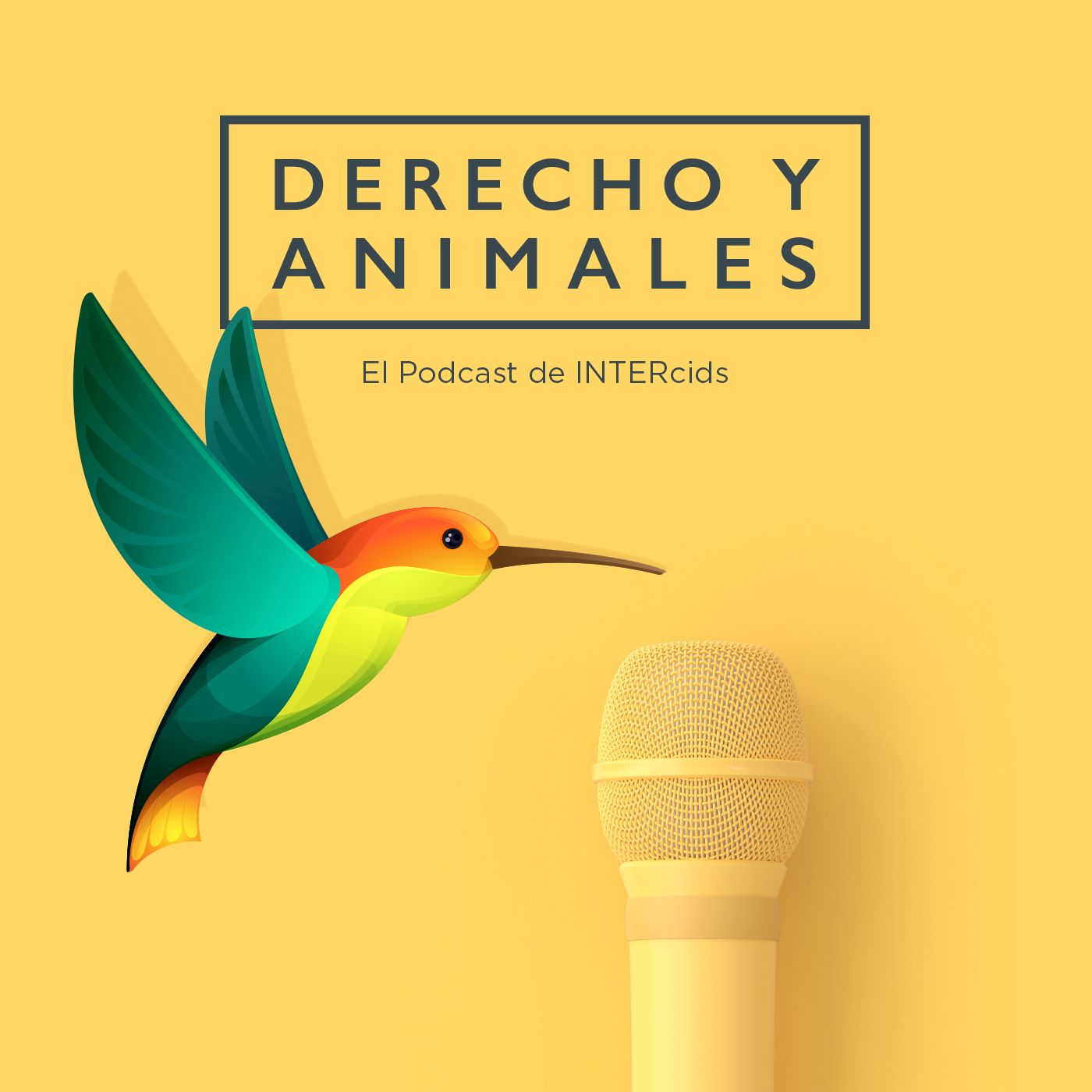
The Animal Turn
Animals are increasingly at the forefront of research questions – Not as shadows to human stories, or as beings we want to understand biologically, or for purely our benefit – but as beings who have histories, stories, and geographies of their own. Each season is set around themes with each episode unpacking a particular animal turn concept and its significance therein. Join Claudia Hirtenfelder as she delves into some of the most important ideas emerging out of this recent turn in scholarship, thinking, and being.
The Animal Turn
Bonus: Justice with Josh Milburn
Podcaster and philosopher Josh Milburn is on the Animal Turn to talk about his latest book and how the concept of justice is central to imagining a future world in which the rights of animals are respected. Claudia and Josh discuss the political turn in animal ethics, some of the tensions between animal rights and veganism, as well as the role cellular agriculture might play in a future zoopolitical world.
Date Recorded: 6 July 2023.
Josh Milburn is a Lecturer in Political Philosophy in the division of International Relations, Politics and History at Loughborough University in the UK. He is the author of Just Fodder: The Ethics of Feeding Animals (2022) and Food, Justice, and Animals: Feeding the World Respectfully (2023). He is also the host of the animal studies podcast Knowing Animals.Find out more about Josh on his website and connect with him on Twitter or Instagram.
Featured:
- Food, Justice, and Animals: Feeding the World Respectfully by Josh Milburn
- Death Free Dairy? The Ethics of Clean Milk by Josh Milburn
- Zoopolis: A Political Theory of Animal Rightsby Sue Donaldson and Will Kymlicka
- The Future of Meat without Animals by Brianne Donaldson and Christopher Carter with a chapter by Carol Adams titled “Ethical Spectacles and Seitan Making; Beyond the Sexual Politics of Meat.”
- Putting Humans first: Why we are Nature’s Favourite by Tibor R. Machen
Thank you to Animals in Philosophy, Politics, Law and Ethics (A.P.P.L.E) for sponsoring this podcast; Gordon Clarke (I
Animals in Politics, Law, and Ethics researches how we live in interspecies societies and polities.
iROAR Network
iROAR brings together podcasts that aim is to make the world a better place for animals.
Disclaimer: This post contains affiliate links. If you make a purchase, I may receive a commission at no extra cost to you.
The Animal Turn is hosted and produced by Claudia Hirtenfelder and is part of the iROAR Network. Learn more on our website.
- Leave a Review on Podchaser
- Check out The Animal Turn Merch.
- Support us on Patreon, Buy Me a Coffee, and Buzzsprout.
00:00 - Introduction
- Welcome back
- Dr. Siobhan O’Sullivan died after living for three years with ovarian cancer
- Consider donating to the Ovarian Cancer Research Foundation
- Going to talk about justice, using Food, Justice, and Animals: Feeding the World Respectfully as the basis
- Long overdue guests
- Claudia was a guest on Knowing Animals
- Josh took over Knowing Animals after Siobhan was diagnosed with cancer. The podcast interviews animal studies scholars with a focus on a recently published piece of work.
- iROAR Network – podcasts focused on animals.
- Siobhan O’Sullivan wanted to create an archive of animal studies and the development of the discipline.
- Worth reflecting on what animal studies communities are and what role they have in the broader ecosystem of academia and advocacy
- Hopefully focussing on justice today
- Justice is a really difficult concept to define
10:30 – What was your journey?
- It is important that we keep our feet firmly in our disciplines when appropriate and to be attached to our methodologies.
- Philosopher in an interdisciplinary community, philosophy is ahead of the curve with animal inclusion
- Peter Singer engaging in what we would call moral philosophy – he is thinking about questions about individual behaviour: “Should I be a vegan?”
- The political turn in philosophy and they are asking questions about animals – authors like Alasadair Cocharne, Sue Donaldson and Will Kymlicka’s Zoopolis. First kind of books focusing on animals and political philosophy
- MANCEPT Workshops working on these topics – met the people who were pushing the discipline.
14:00 – What is the political turn in animal ethics?
- “The emergence of political philosophical reflections about animals” – Josh
- “How do we fit animals into political liberal theory?” – Josh
- How political institutions, structures, and processes might be transformed to secure justice for both human and non-human animals – this constructive focus on justice is essential to political philosophy.
- Political philosophy has a slightly more constructive focus, a healthy dose of pragmatism. Different questions about the level of action.
- Interested in where animals fit into our societies and how we should structure our societies.
- Animal rights are a matter of justice
- In a liberal society there is room for disagreement in a society – “we should tolerate each other,” Josh
- But we can’t tolerate each other when it comes to matters of justice
- Political philosophy is a question about the kind of behaviours we can legitimately force others to do.
- An imagined future with animal rights – what does that food system look like?
20:30 - Tension between animal rights, veganism, and the future food system
- Josh went vegan and was interested in the arguments against veganism but some are interesting and provocative.
- What is the kind of future we might want to aim for – “ideal theory” – what should we be aiming for?
- “This isn’t head in the sky theorizing,” Josh
- A clear sense of what we are aiming for and illustrating that it is a desirable future is important
- “I want to see us live in a society where animals are respected in which, for example, we don’t slaughter animals” Josh
- The stereotype of the whole foods, plant-based system.
24:00 – Veganism: Whole Food, Junk Food, and a Good Meaningful Life2
- The stereotype of the healthy vegan is maybe dying a death now – but there is a place for junk food.
- A core tenet of liberalism is that we should let people live their lives, a good meaningful life.
- Different people have different visions of what a good meaningful life is – for lots of people this is going to involve eating animal foods.
- It is not okay to violate animal rights, it is an injustice.
- “Could we have our cow, and eat her too” – can we have two incompatible things?
- People value access to animal based foods and lose something when they go vegan
- Taking seriously “these island retorts,” Claudia
- Animals should also have access to a good meaningful life too.
30:30 – Why is Cellular Agriculture Part of this Conversation about the Good Life?
- One route to creating a non-vegan but animal rights respecting food system.
- Growing animals’ cells outside of their bodies to produce products.
- Cultivated meat is a more complex scientific process than other forms of cellular agriculture, including genetic modification to create cell-level factories.
- Heme is in the Impossible Burger is produced in a completely plant-based way
- Perfect Day contains milk proteins that were never inside a cow.
- Why grow a whole cow if you can produce things like leather producing the cells – in principle it is much more efficient.
- We could imagine a way in which cultivated meat is included in a future animal rights respecting system.
- How could “cell donors” (animals) be included in this future system? Could animal labour rights be used here? They would have the right to pay, unions, retirement.
- A way animals could provide raw materials and yet still be respected.
- Abolitionists want a system without animals – it is a strange thing that you wat to liberate animals and want them to cease to be. Need to work out how they are going to fit into our society.
37:00 – Isn’t the Premise that Animals are Food Problematic?
- There are many futures imagined with cellular agriculture?
- The kinds of future are complicated, and they are difficult.
- So many difficult questions could be undercut by abolitionism – it allows us to avoid these complexities.
- Companies trying to produce human milk via cellular agriculture “Death Free Dairy? The Ethics of Clean Milk”. Producing human milk via cellular agriculture can revolutionize infant care.
- Cannibalism might help us think through these ethical questions. If no one is getting hurt we shouldn’t mind too much.
- Squeamishness says something about how food systems and who is worth being eaten and not
43:00 – Changing Visions and Food Cultures
- Need to change visions and undercutting the idea of animal use
- Might be able to sever this connection between meat and animals.
- “Ethical Spectacles and Seitan Making; Beyond the Sexual Politics of Meat” by Carol Adams in “The Future of Meat without Animals” by Brianne Donaldson and Christopher Carter – having plant based meat and an animal on the cover “that might bespeak a presence rather than an absence.” A fascinating twist.
- Food cultures can change quickly – see for example the consumption of whales in the UK.
- “The ideas about what meat is, what meat means, and the ways in which meat is connected to animals can change very quickly” Josh
- In future meat might be divorced from animals.
49:00 – How has the Book been Received?
- Been blocked on Twitter by some protestors who are not sympathetic to what he is saying.
- Accept that there will be some hostile response but need to follow arguments were they go.
- Some people might not buy into animal rights or liberalism, but if we start there the direction of the argument is a reasonable one.
- The hope is that we can have it all – technology is not going to solve everything but it can be part of the way to a different kind of relationship with animals.
52:15 - Zoopolitical vs. Abolitionist Futures and Use Value
- We faced with a choice between a zoopolitical future or an abolitionist future. A zoopolitical future will likely involve using animals in some way.
- It is one thing to say we can’t use animals in a way that is harmful but if we can use them in some ways that are nonharmful
- Abolitionist answer is an easier one that a zoopolitical future – and if we think it is possible we need to think seriously about the ways in which we can use them.
- Very different systems and histories of use and oppression.
- There are many kinds of use.
- It’s all variable and very difficult.
- What societal protection should backyard chickens have?
- There may be ways we can interact with animals in a way that is constituent with their rights and utilize them. – and this is the only way we can go if we are not using an abolitionist vision.
- There is space for interaction from animals.
59:40 – Justice and The State
- It has been skirting our discussion so far
- Respect, workers rights, citizenship rights - structures that don’t exist yet.
- Why is justice the thread that ties everything together?
- These possible systems of food production – it is a question of whether the state should allow something so it is a question of justice.
- There is room for veganism in this future world.
- But with a focus on justice, we could build food production methods in a way that does not violate animal rights.
- Justice is a balancing act, especially for liberals who think the state should leave people to live their lives.
- If the state is not involved enough or if the state is too involved, serious injustices can be committed.
- Using police and force should not be used lightly – banning should be a last resort.
- Stopping humans from farming non-sentient creatures might be an injustice to the humans involved.
01:05:06 – Quote
- From the book “Putting Humans first: Why we are Nature’s Favourite” by Machen
- “Those who genuinely care for animals should consider the possibility that to the extent arguments for animal rights succeed, they may confer additional power on governments and bureaucrats to run our lives for us.” Check
- Animal rights would lead to big state power – we need to be careful of giving too much power to states but they have a particular role to protect the vulnerable.
01:08:20 –State Intervention into Animals’ Lives
- Presumably animals don’t want state intervention into their lives either. What freedoms are they afforded and how much state intervention is involved in their lives. How can they choose?
- Animals must have the right kind of democratic representation. Their voice must be heard in political decision making.
- First steps toward this with the Sentience Act, not representation but placing animals on the agenda and hopefully the first steps toward something greater.
- This raises serious question – if we are serious about animal rights we face a fork in the path.
- There is no guide for how societies should look and there should be room for individuals to express their preferences and what it means to live a good life.
- What things will look like in future will be worked out in practice.
- There are incremental changes but we need to think pragmatically what future cities and societies will look like.
01:13:15 – What are you working on now?
- A couple of projects
- Working on a book about where animals fit into Robert Nozick’s thought. His book “Anarchy, State, Utopia” included a huge discussion about animals and vegetarianism.
- Starting a project on animals and warfare. Well developed tradition related to the ethics of warfare but it is resolutely anthropocentric. What can the ethics of war do to helping animals? To develop a new strand of just war theory.
01:16:17 – Food Justice and The Good
- Food and COVID-19 in Canada, article. Animals often neglected in conversations about a just food system.
- Animals often neglected in threads about justice.
- The relationship between food justice and animals is a difficult one. Food justice seems to be very anthropocentric but the response to that needs to be done sensitively. Don’t want to underestimate them.
- Thinking about who has access to what food.
- There are colonial legacies of these food systems that also altered ecologies and the food systems.
- Looking backward is central to a zoopolitical vision and a recognition that we brought animals into our society.
- Maneesha Deckha’s work on colonialism.
- But some o the visions of the good are quite British in nature
- Liberalism allows you to recognise that there is a diversity of conceptions of the good.
01:24:00 – Thank yous and Credits
Podcasts we love
Check out these other fine podcasts recommended by us, not an algorithm.

The Animal Highlight
Claudia Hirtenfelder
Knowing Animals
Josh Milburn
Species Unite
Species Unite
The Deal With Animals with Marika S. Bell
Marika S. Bell
The Other Animals
Laurent Levy
Beyond Species
Beyond Species
The Anthrozoology Podcast
Anthrozoology Podcast
Freedom of Species
The Freedom of Species Team
Our Hen House: Vegan & Animal Rights Movement | Stories from the Frontlines of Animal Liberation
Jasmin Singer and Mariann Sullivan
Derecho y Animales
Derecho y Animales
Storytelling Animals
Dayton Martindale
Species
mackenmurphy.org
Animal Law Matters
K & R Animal Law
The Humanimal Connection
Humanimal Trust
The Animal That Changed You
Katya Lidsky
Think Like a Vegan
Emilia Leese
The Shifting Lens: Viewing the Animal Experience
Tiamat Warda Rebecca Madrid
The Salmon People
Canada's National Observer
Comme un poisson dans l'eau
Victor Duran-Le Peuch

